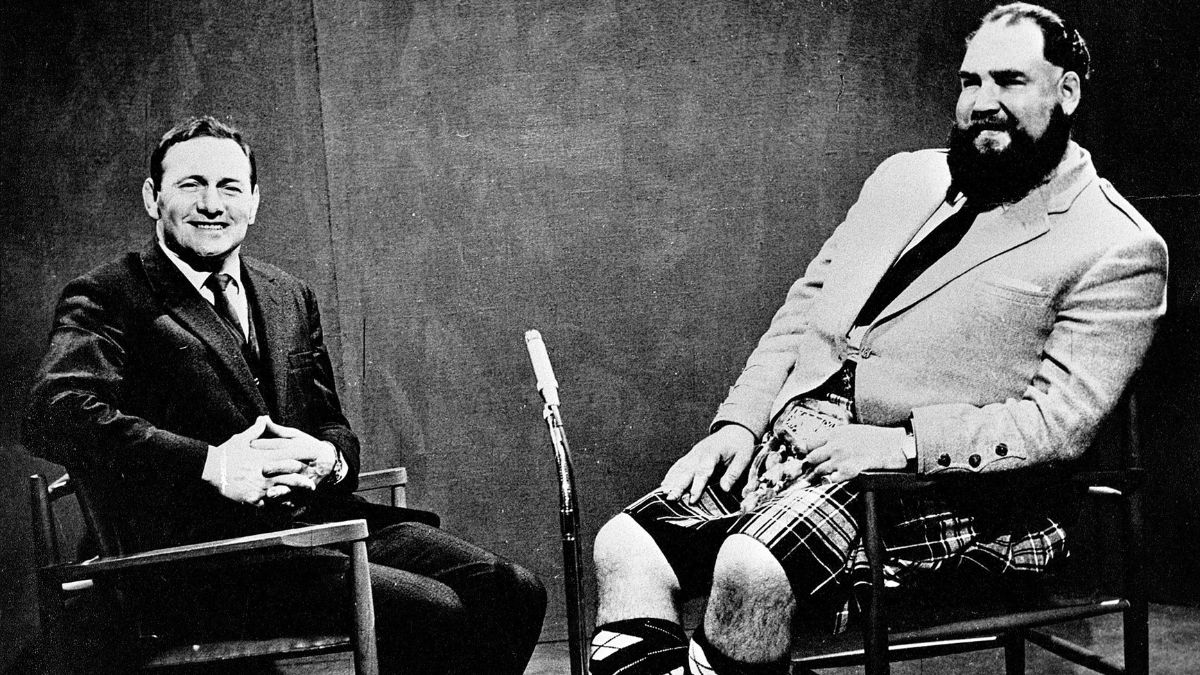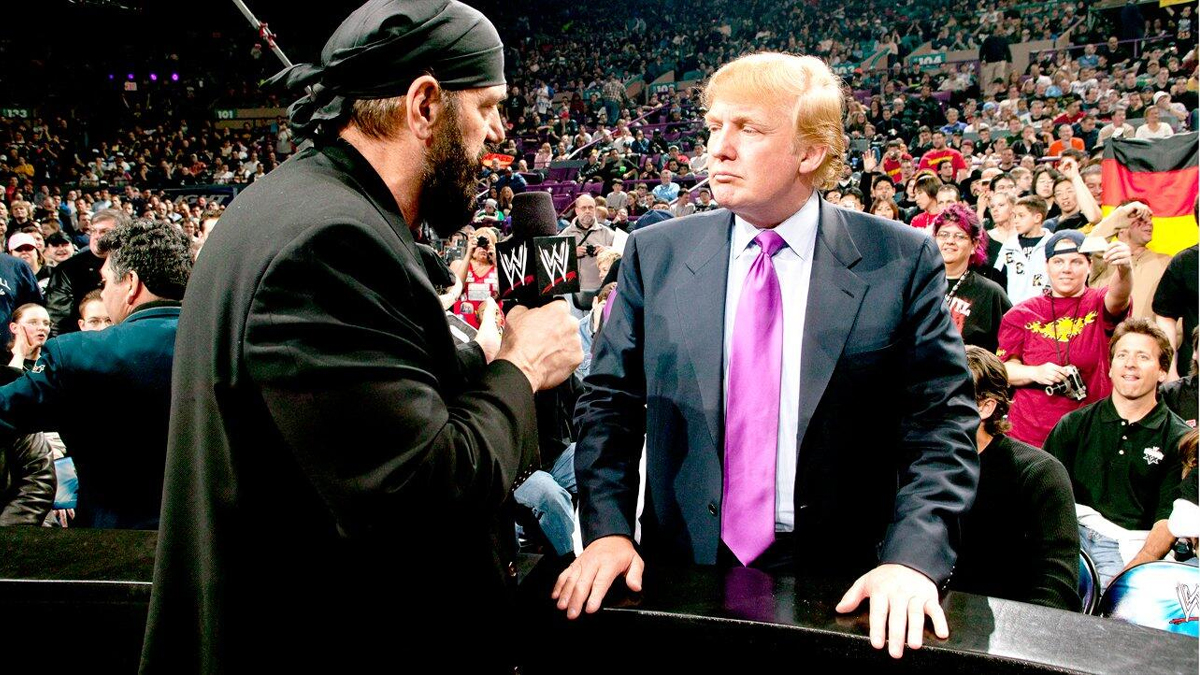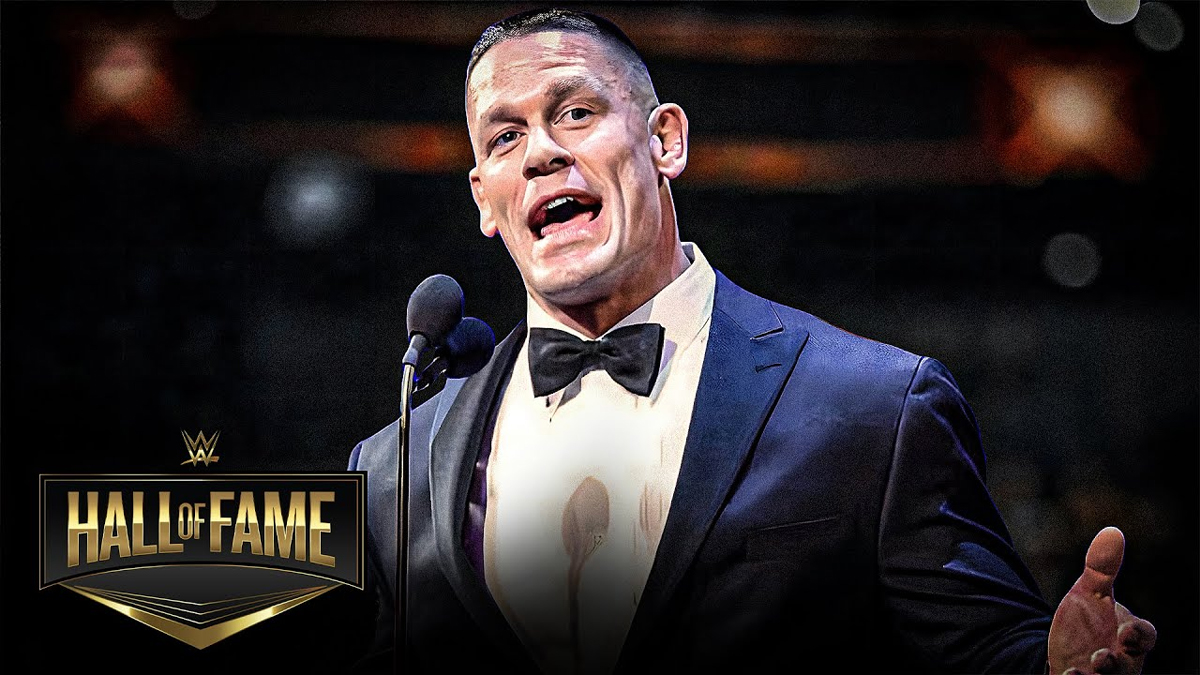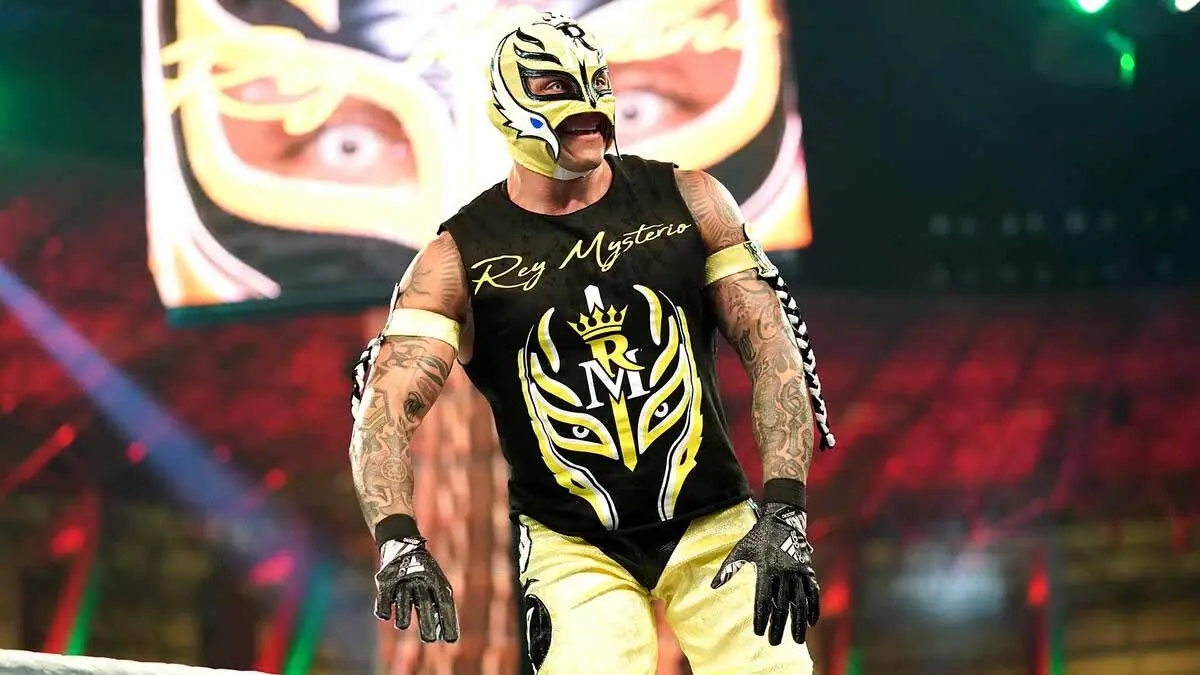Since its formation in 2015, The Professional Wrestling Hall of Fame for Scotland has embarked on a mission to celebrate the most important contributors of the industry in its home nation. Each year, it hosts formal induction services and use its media reach to introduce the rich heritage of grappling in the country to a modern generation. On September 8, 2022, “Wild” Ian Campbell was inducted into The Professional Wrestling Hall of Fame for Scotland as its eighth member. With this induction, Campbell joins an elite class of wrestling luminaries including George Kidd, Andy Robin, Frank Cullen and a handful of other legendary stars from the history of pro wrestling in the country.
As is tradition with The Professional Wrestling Hall of Fame for Scotland, a plaque that commemorates the induction of Campbell was unveiled during a Civic Ceremony held in the town of Dunfermline and hosted by Jim Leishman MBE, Provost of Fife. This plaque, which contains career imagery and biographic information on its latest inductee will go on permanent display to the public and promote awareness of sporting achievement in the hometown of its most famous wrestler.
In attendance were members of Campbell’s family and the mainstream media, at a service which honoured a heavyweight from Scotland who competed during the peak years of wrestling in Britain. It was this era, spanning from the early 1960s to early ’70s, that Scotland was more famous for wrestlers in other weight categories. From lightweight greats such as George Kidd, Andy Anderson, Bill Ross and Jim McKenzie, to middleweights such as Clay Thomson and Andy Robin, there were few heavyweights across the entire British circuit who had the mainstream success of the burly Campbell.
Physically imposing, the bearded Ian Campbell was very much a ‘thinking man’s giant’ and was renowned for his articulate wit, and masterful use of his size and frame to tell a story. It was his all-around skills which would take him from small-time amateur success in his home nation to the main event in rings across the globe.
A native of Fife, Ian Campbell was born at Culross Abbey, Scotland. As a young man, he found early athletic success as an outstanding amateur wrestler, winning the Dunfermline Carnegie Physical Training and Athletics Club championship in 1953. The following year, he travelled to North America where he began his career in the professional ranks. Learning his craft by grappling on the same bills as revered former World Heavyweight champions Buddy Rogers, Dick Hutton and Lou Thesz, the young Scot adapted to various aspects of the professional wrestling circuit, an industry in which he also operated as a promoter.
In 1959, Ian Campbell would make his return home to the United Kingdom and rapidly became one of the premier stars in Joint Promotions, a syndicate of wrestling organizations which operated throughout the country. Campbell quickly adopted the patriotic moniker ‘Mr. Scotland’, a persona which would be reinforced as he frequently entered the ring accompanied by a troupe of bagpipers. Thrilling audiences in early battles against opponents such as Dennis Mitchell, Roy ‘Bull’ Davis and Mike Marino, the young hopeful would eventually be crowned the Scottish Heavyweight Champion in 1961. It was a claim that was solidified by Campbell through successive victories against the reigning British titleholder Billy Joyce, and in battles against World title contender George Gordienko.
As the Official Heavyweight Champion of Scotland, the reign of ‘Wild’ Ian Campbell was noted for a series of successful defences from a variety of international challengers including Tibor Szakacs, ‘Texas’ Jack Bence, Peter Fanene Maivia and Prince Curtis Iaukea. He would frequently serve as the captain to teams of Scottish wrestlers against international squads in tournaments across the United Kingdom.
With the credibility of Ian Campbell as a major crowd attraction fully established on the domestic circuit, his international reputation continued to grow. He won the All-Nations Tournament of 1961, featuring an elite class of athletes from across the globe, hosted by promoter Gustl Kaiser in Krefeld, Germany. Over the course of the next decade, Campbell would wrestle all over the world, competing in countless headlining contests across Japan, South Africa, and the Middle East, where he faced Adnan Al-Kaissie in a prolific encounter in front of masses of fans in Iraq.
A crowd favourite, respected for his mammoth frame and rugged matwork, Ian was also able to transfer his stardom from the live halls to the small screen. He became a regular star on ITV’s coverage of professional wrestling since his debut win over Kiwi Kingston in 1961. On May 22, 1963, Campbell was selected to compete by Royal appointment, wrestling to a draw with Billy Robinson before a crowd which included Prince Philip, The Duke of Edinburgh, at the Royal Albert Hall in London. Ian would even perform to a more mainstream audience the following year, playing himself on the ITV soap opera Coronation Street, in an episode where he played himself and wrestled against the character Stan Ogden, portrayed by actor Bernard Youens.
Although Campbell was seemingly unbeatable as the heavyweight champion of Scotland, arguably his finest championship glory would be realized on May 4, 1966 when he captured the British Heavyweight crown from Billy Joyce at Perth City Hall. After relinquishing that title, Ian would once again prove his capabilities on the European circuit as an entrant in the Catch Cup ’70 tournament held in venues throughout Germany.
In 1972, Campbell faced the reigning Irish titleholder Sean Regan in a special ‘champion versus champion’ contest which would be his final televised appearance as a professional wrestler. He would remain billed as the undefeated champion of Scotland until his quiet retirement from the industry in the summer of that year.
Upon his departure from pro wrestling, Ian would focus on charity work and briefly return to acting starting with a small role in the film The Wicker Man (1973). Among other business ventures, Campbell would continue to work on a variety of supporting acting roles and was heavily involved in charitable projects. He was deeply concerned in children’s charity work and dedicated a significant amount of time and personal money to the causes of child poverty and medical research. Campbell also promoted various fundraising events relating to this and forged a successful career as a public speaker throughout his later years, before his death in 1993.
For a more local take on what Campbell meant, see the article Ian Campbell: Hall of fame honour for late Dunfermline wrestler who stole show on Coronation Street in The Courier
RELATED LINKS
- The Professional Wrestling Hall of Fame for Scotland on Facebook
- Oct. 22, 2021: Jim McKenzie added to Scotland’s Hall of Fame
- Dec. 21, 2020: Scotland’s Hall of Fame adds Charles ‘Chic’ Purvey
- Dec. 6, 2019: ‘Grizzly’ Andy Robin was a Scottish national treasure
- June 30, 2019: Remembering Drew McDonald: Scottish Hall Of Famer



